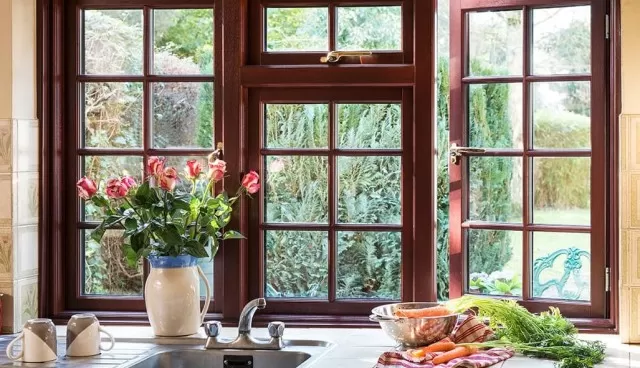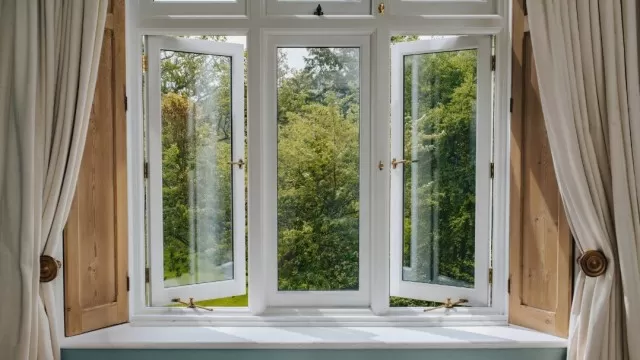Many homemade window cleaners use water as a base, and to prevent any potential stains or marks on the glass, we recommend opting for distilled water.
Simple Homemade Window Cleaner Recipe:

Many homemade window cleaners use water as a base, and to prevent any potential stains or marks on the glass, we recommend opting for distilled water.
This straightforward recipe for homemade window cleaner is quick to prepare and can be customized with your preferred essential oil for a delightful scent. Vinegar is an excellent addition to DIY glass cleaners due to its natural acidity, which effectively removes dirt and grease.
Ingredients Needed:.
2 cups distilled water
1/2 cup distilled White Vinegar
10 drops of essential oil (optional)
Step 1: Gather Your Ingredients
Collect all the necessary supplies, including distilled water, distilled white vinegar, and essential oils if you wish to add a pleasant fragrance.
For instance, we used lemon essential oil for its fresh and clean aroma.
Step 2: Combine in a Spray Bottle
In a spray bottle, mix together all the ingredients and gently shake the bottle until they are thoroughly combined.
A crucial reminder when reusing spray bottles: Be cautious to ensure there are no residual chemicals from previous uses, as certain chemical residues, when combined, can lead to undesirable reactions.
It’s advisable to clean and rinse the spray bottle with soap and water before reuse. Always label your homemade solution appropriately to prevent accidental mixing of chemicals.
Rubbing Alcohol-Enhanced DIY Window Cleaner:
This version of the homemade window cleaner incorporates rubbing alcohol, which aids in quick evaporation on glass surfaces, reducing the likelihood of water spots.
Additionally, rubbing alcohol has disinfectant properties, making this DIY cleaner suitable for disinfecting surfaces and eliminating germs and bacteria.
Ingredients Required:.
1 cup distilled water
2-3 tablespoons distilled white vinegar
1/4 cup rubbing alcohol
Step 1: Add Ingredients in Sequence
Begin by adding the rubbing alcohol and vinegar to a spray bottle.
Follow this by filling the bottle with distilled water.
For optimal results, ensure that the vinegar you use is labeled as “made from grain”.
Step 2: Combine in a Spray Bottle
Secure the spray bottle lid tightly and shake the contents vigorously to ensure thorough mixing before use.
Important note: Due to its high flammability, it’s essential to store this homemade window cleaner in a cool and safe location, well out of reach of children and pets.
Homemade Glass Cleaner Using Dish Soap:

Dish soap proves to be a straightforward yet highly effective cleaning agent for glass surfaces, requiring only a small quantity to achieve outstanding results.
Its remarkable ability to combat grease provides an added cleaning punch, particularly when dealing with exceptionally dirty or oily surfaces. Notably, it lacks the pungent vinegar odor, making it a preferable option for those sensitive to strong smells.
Materials Needed:.
16 ounces of hot water
A few drops of mild dishwashing liquid
Step 1: Gather Your Ingredients Start by collecting your dishwashing liquid and hot water.
For a streak-free finish, we recommend using distilled water.
Step 2: Combine the Ingredients In a large container, blend the hot water and dishwashing liquid thoroughly.
Once mixed, pour the solution into a spray bottle for convenient application.
How to Use Your DIY Window Cleaner:
To utilize your freshly prepared homemade window cleaner, begin by thoroughly removing any dust or debris from the glass surface.
Next, evenly apply the glass cleaner from top to bottom, ensuring comprehensive coverage. Allow the homemade window cleaner a few minutes to work its magic before proceeding. Afterward, wipe the glass dry using a microfiber cloth. It is essential to ensure that the cloth you use is clean before applying it to glass surfaces to avoid introducing additional dirt or streaks.
A word of caution: Refrain from using any cleaner that contains vinegar on surfaces such as marble, granite, slate, tile, or solid surfacing, as the acidic nature of vinegar could potentially cause damage.
When employing other Cleaning Solutions, it is always advisable to conduct a small test in an inconspicuous area first to confirm that it won’t harm the surface.
Tips for Achieving Streak-Free Windows and Glass Surfaces:

To ensure that your windows, mirrors, shower doors, and other glass surfaces remain streak-free, follow these useful guidelines.
When employing a DIY cleaner on glass:.
Always start cleaning from the top and work your way down.
This strategy effectively prevents any drips and streaks from forming and running downward.
Be cautious about the cleaning cloths you use.
If there is any residue from laundry soap or other substances on your clothes, it may result in streaks. Consequently, it’s advisable to avoid laundering your cleaning clothes alongside those used for tasks like cleaning the car or dealing with greasy surfaces.
Refrain from using paper towels or rags for cleaning windows, as they tend to leave lint and residue behind, diminishing the clarity and shine of the glass.
Instead, opt for a microfiber cloth or a lint-free rag when using your DIY window cleaner. These materials effectively eliminate streaks, ensuring a crystal-clear finish.
Alternatively, consider employing a squeegee when cleaning exterior windows, as it can yield excellent results.
Safety Measures for Crafting Homemade Glass Cleaner:
While creating your homemade glass cleaner is an economical and straightforward solution, it’s crucial to exercise caution when mixing cleaning agents.
Here are some combinations of chemicals that must never be mixed due to the potential creation of toxic substances:.
Vinegar and chlorine bleach
Bleach and ammonia
Bleach and rubbing alcohol
Hydrogen peroxide and vinegar
In the event of accidental mixing, these combinations can produce harmful and dangerous compounds.
If such a mixture occurs unintentionally, it is essential to vacate the area immediately for safety reasons.
*The information is for reference only.